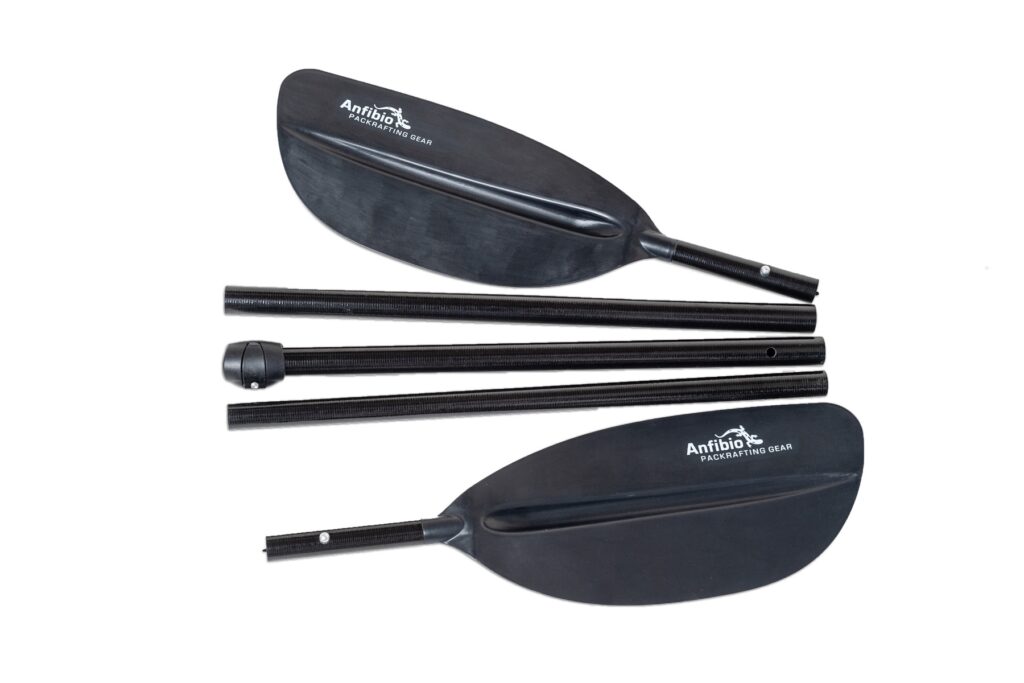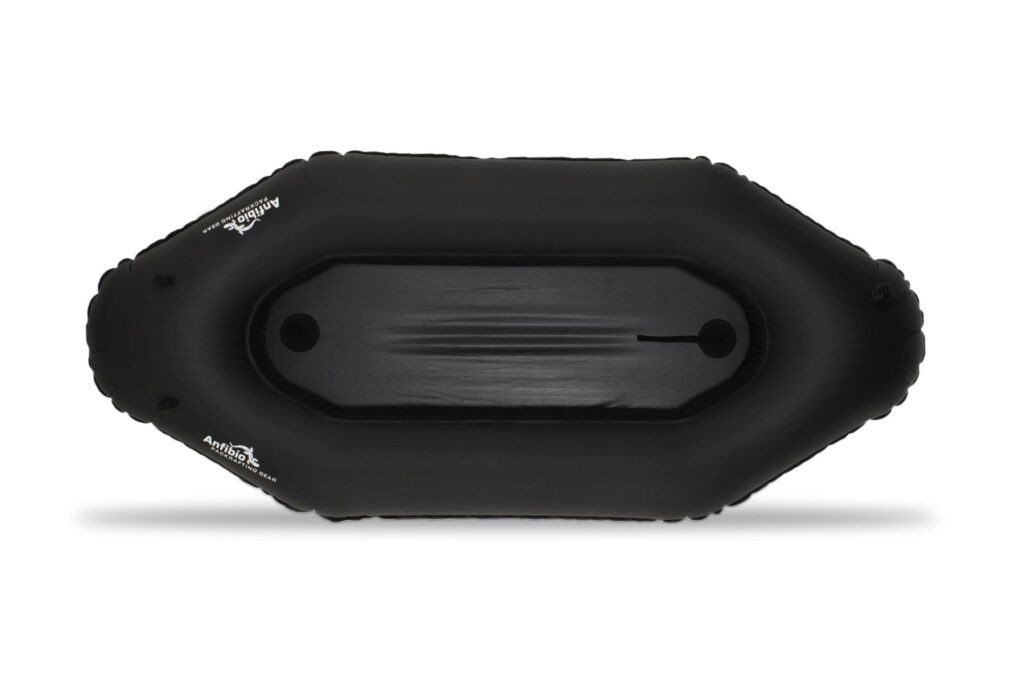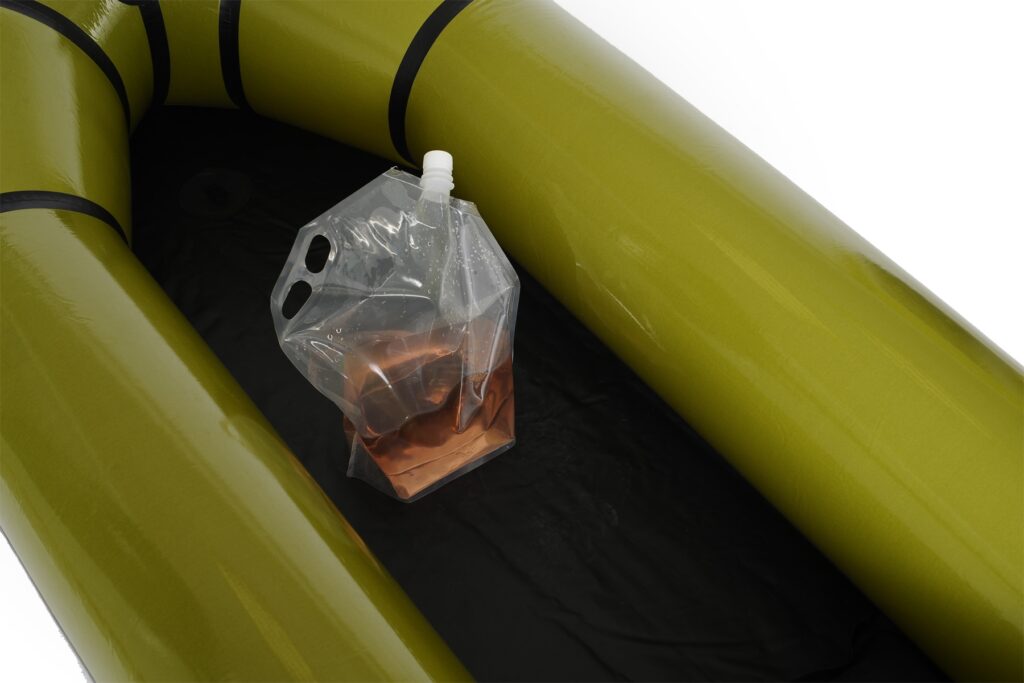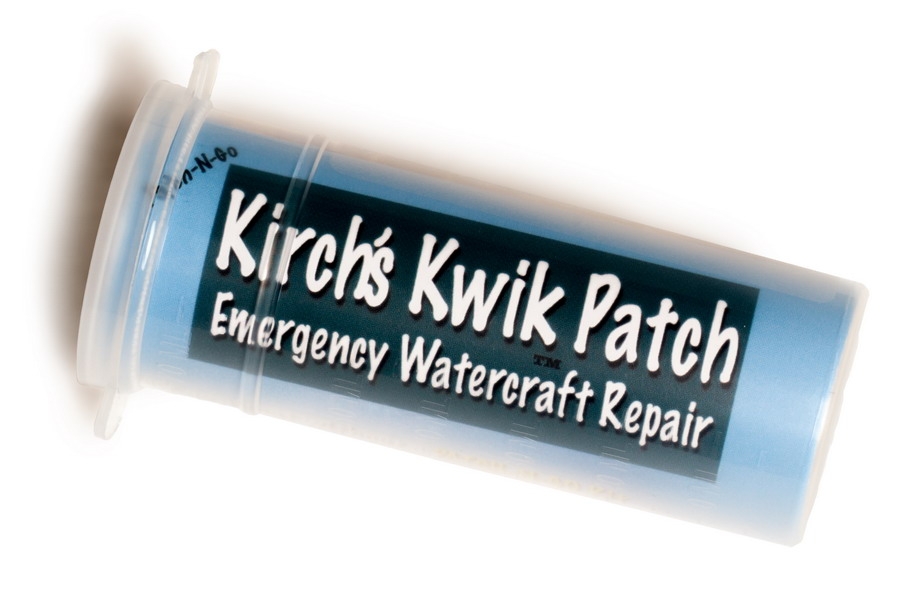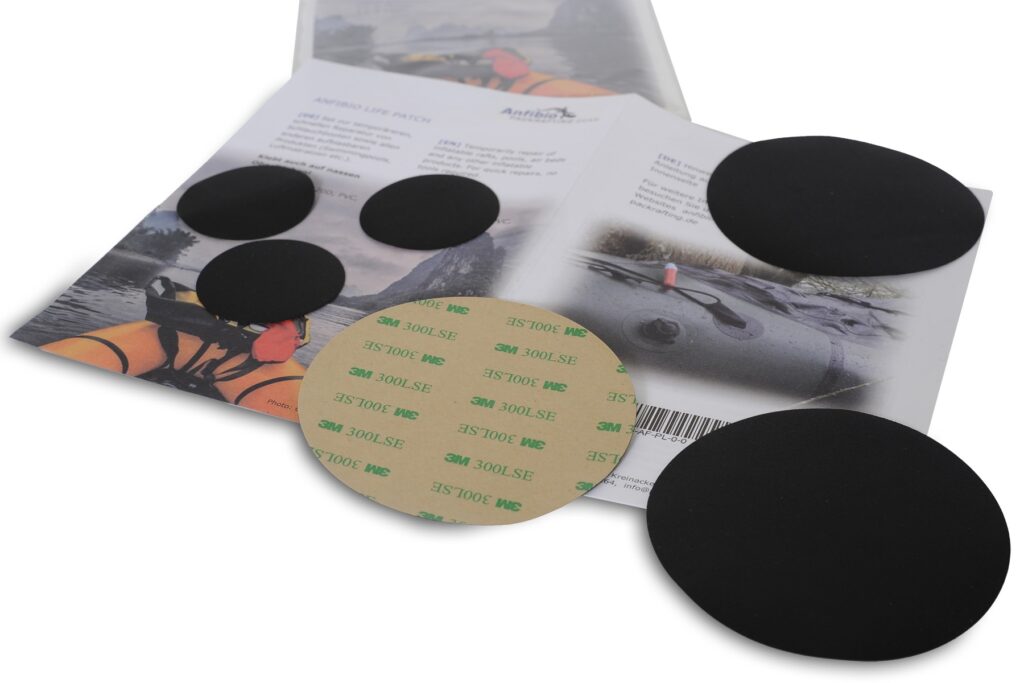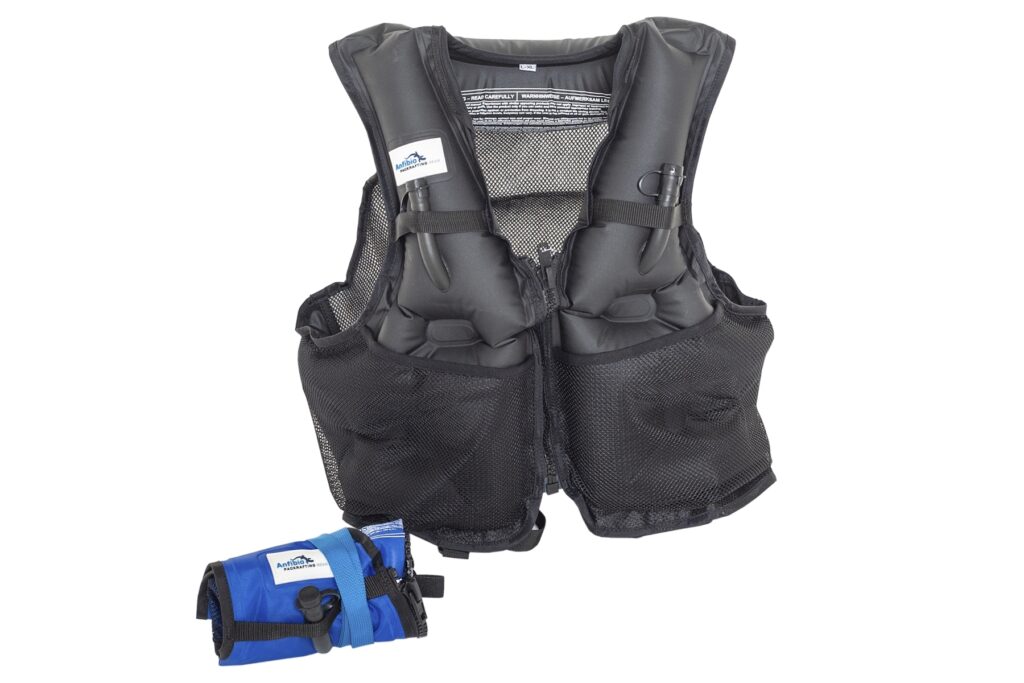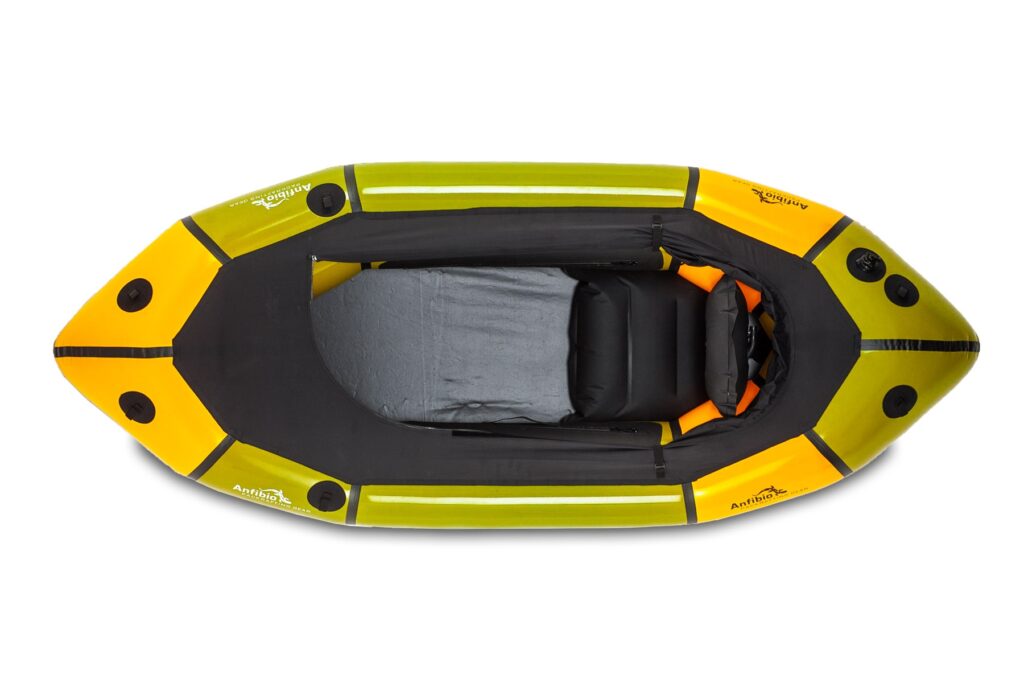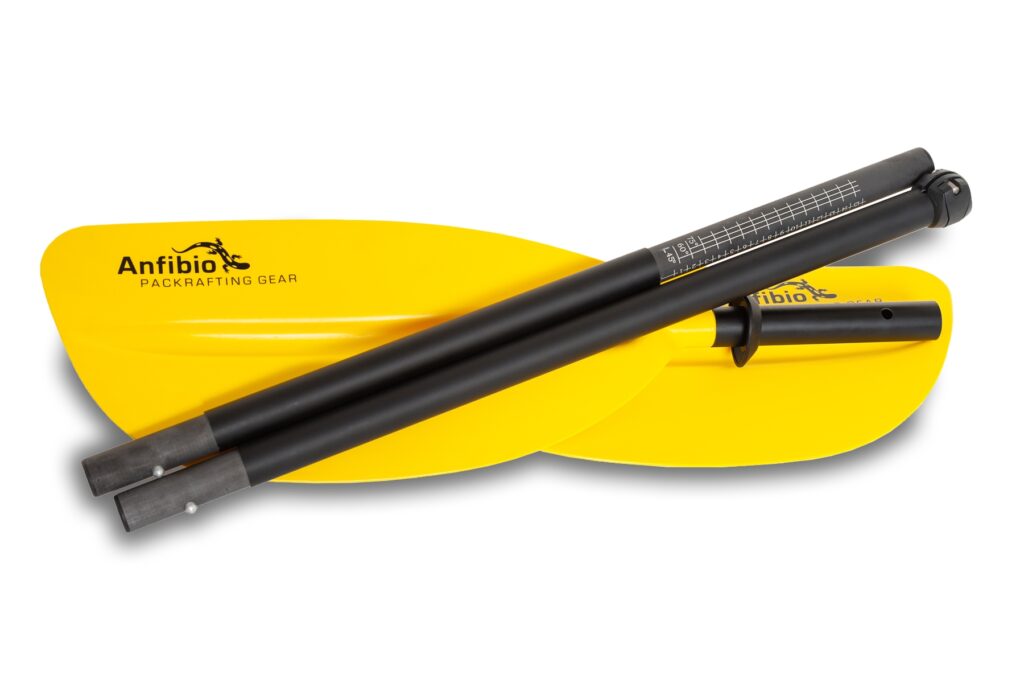3 years of exploratory ultralight packrafting with Anfibio
I have been using the Anfibio packrafting equipment for the last 3 years, during several expeditions to some of the most isolated mountain regions of North & East Siberia and Siberian Arctic. All my expeditions can be called “fast & light”, and I have always been trying hard to eliminate any unnecessary grams of weight. This is because I always have to carry all the equipment in my backpack, with food for multiple weeks, and packrafting never really starts from the expedition onset, but almost always I first trek for some hundrends of kilometers to approach a plateau or a massif, and only somewhere in the middle of remote wild mountains, I can use rivers flowing out towards villages. Always pushing for the lowest weight possible means that I can offer interesting insights into the performance of Anfibio’s packrafting equipment on the border of what is actually feasible with it.
Expeditions with Anfibio:
- Putorana Plateau (North & Center), summer 2021 – A solo expedition in July to the very remote North and Central regions of Putorana Plateau, with paddling over a Class-3 upper reaches of the Kotuy river [Link to more details].
- Western Chukotka, autumn 2020 – A solo expedition to the mountain region called Anadyr Highlands in western part of Chukotka, at the beginning of September, with some easy paddling in rivers [Link to more details]
- Putorana Plateau (West), autumn 2019 – A solo expedition to the western part of Putorana Plateau, at the beginning of September, with some easy paddling in lakes [LINK].
>>> Check all the expeditions here <<<
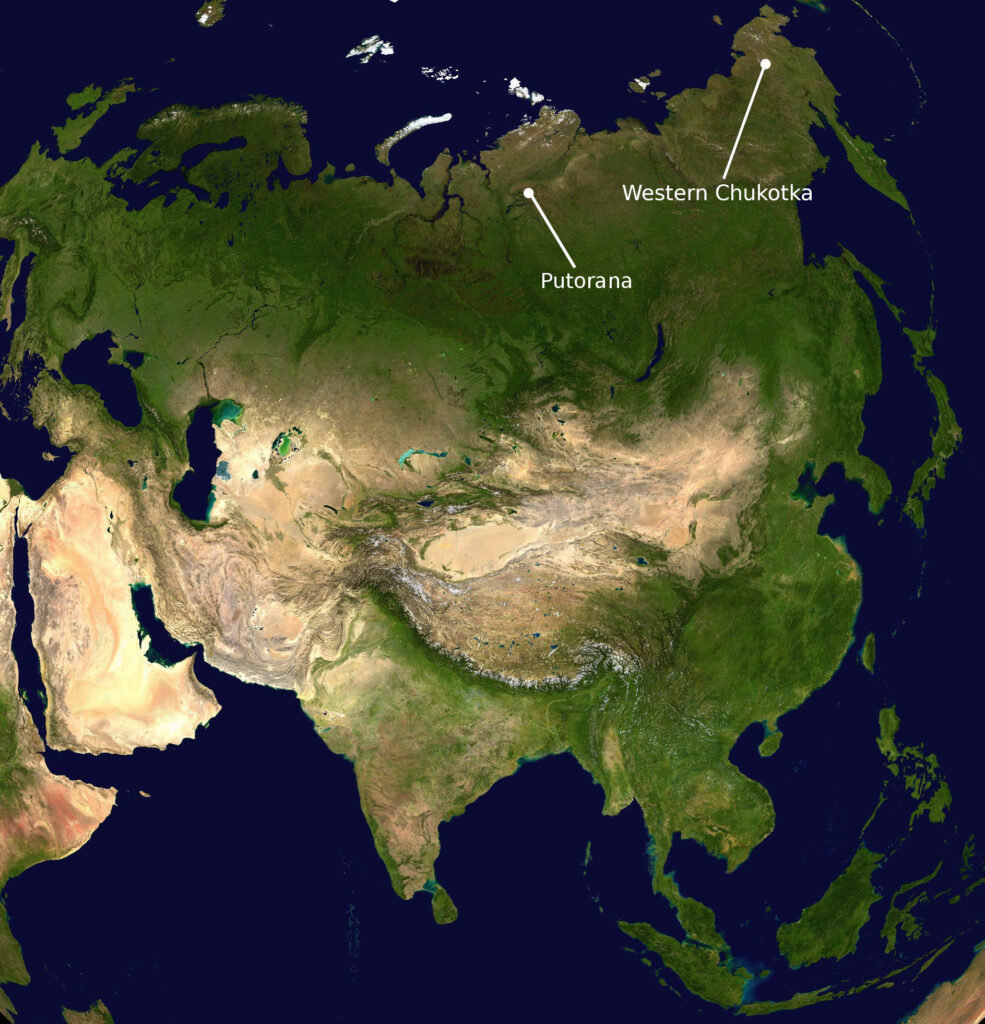
Types of expeditions with respect to packrafting, and the respective equipment
I use packrafting equipment as a means to accelerate and facilitate the exploration of very remote mountain ranges. Thus, it serves as a supporting form of moving forward in very rough terrain. Nonetheless, it may still constitute the bulk of the expedition.
Overall, depending on the terrain and the specifics of the destination, packrafting on my expeditions, and the associated equipment, could belong to one of two types:
Expedition type 1: Packrafting rivers over large distances, difficulties up to III.
On such expeditions, packrafting plays a central part, it can even form the majority of the expedition timespan. Usually, the expedition aims at exploring some very remote region, and with packrafting, I attemp to avoid trekking over swampy and unforgiving terrain as much as possible. One such expedition was my trip to Putorana Plateau in 2021. For such expeditions, it is critical to have equipment that is sturdy and enables safe long-distance packrafting, while simultaneously being lightweight. The following set of items is in my view the perfect balance between all these aspects, and it includes:
- Anfibio Rebel 2K is a packraft that combines very low weight (around 2kg) with robustness and comfort, thanks to the lightweight deck. It served amazingly well when packrafting down the Kotuy river, with many rapids of up to class 3 [External link].
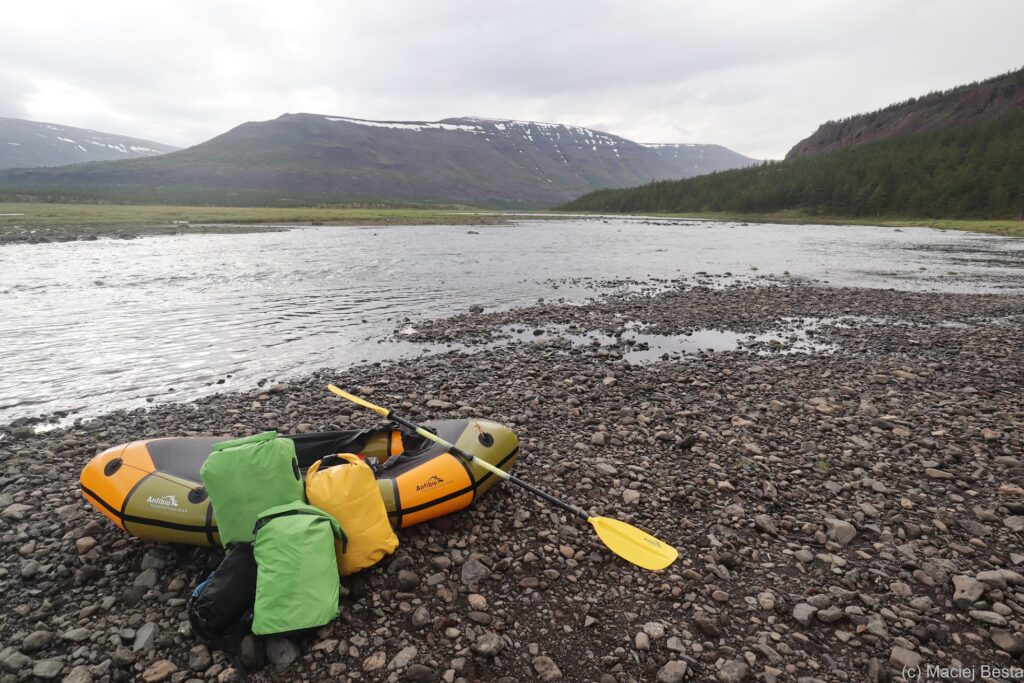
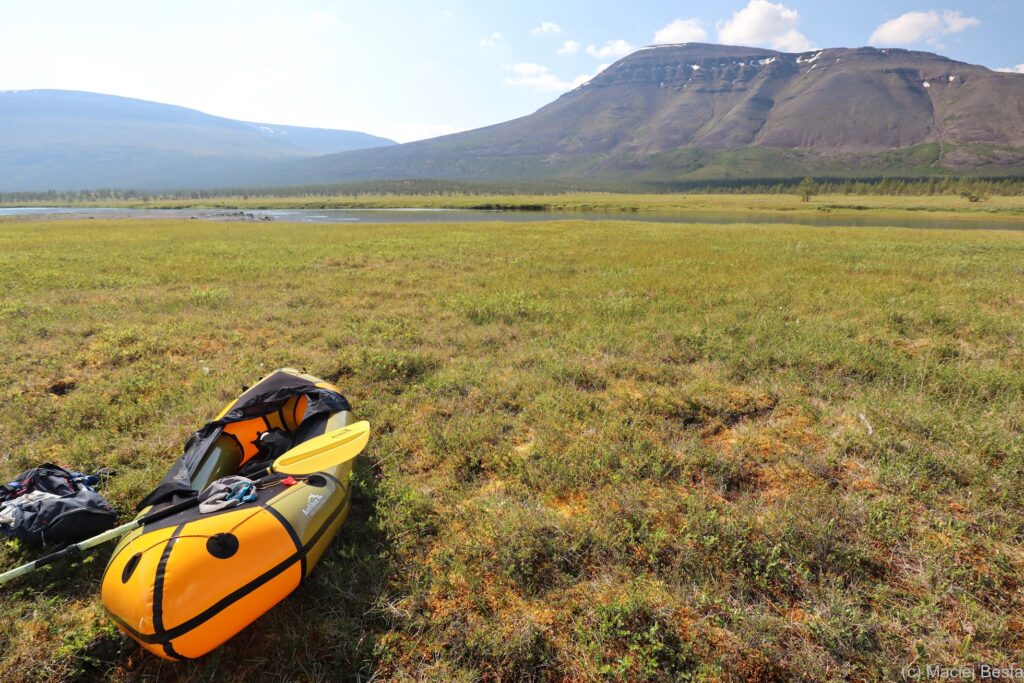
- Anfibio Buoy Boy is the lightest available (around 400 grams) self-floatation vest that ensures a reasonable safety level. I had some thinking about whether to take it or whether to use my lowest weight floatation system based on Anfibio bottles (see below). Taking it was a very goos decision – the boat capsized several times, and Buoy Boy probably saved my skin [External link].
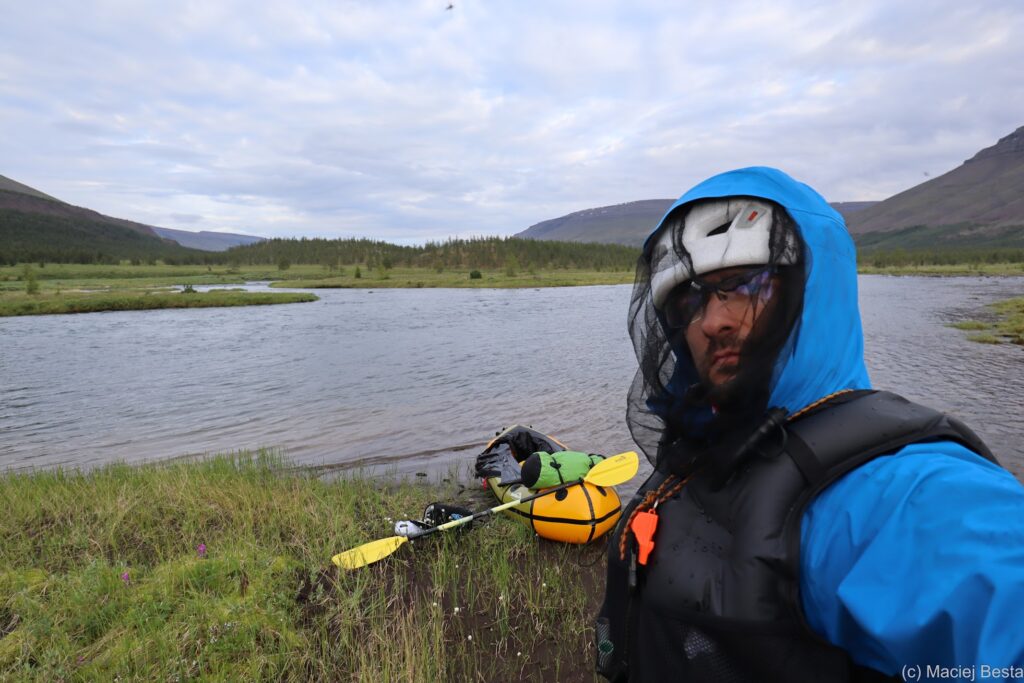
- Anfibio Vertex Tour [External link] is a lightweight paddle (just 890 grams) that is robust enough to enable secure paddling over long distances. While being perfectly suited for rivers of difficulties of I to II, it might not always be the best choice for class III rivers. I always make an individual decision, based on a concrete river and distance, on whether to take it or whether to use something more sturdy, for example Anfibio Wave.
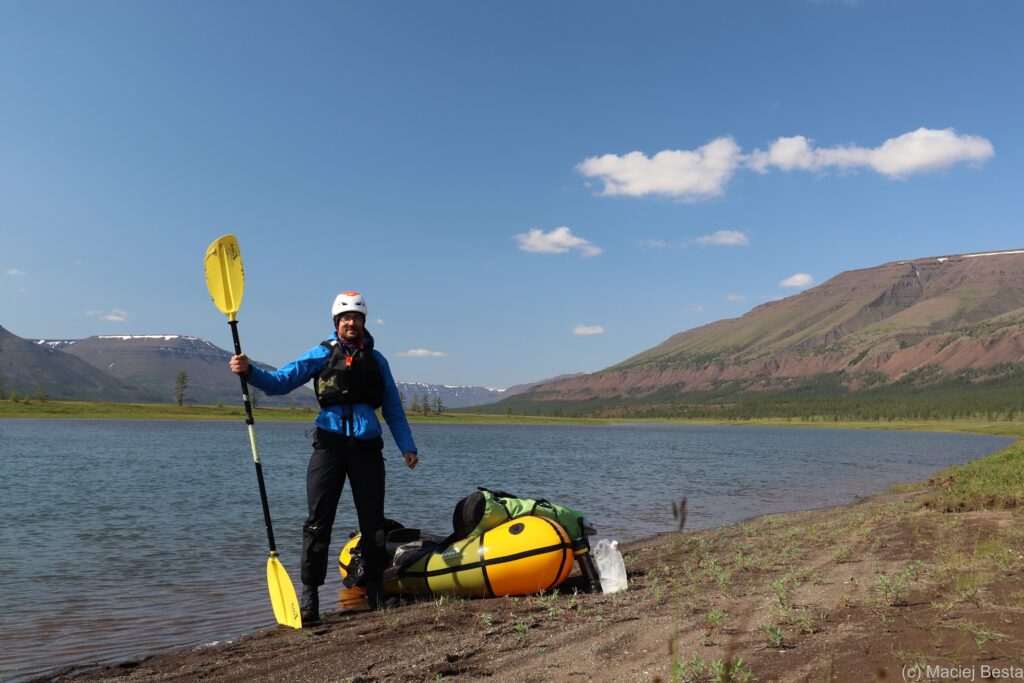
- Anfibio Lifepatch is a great system for field repair. It does not need extensive cleaning of the material to be patched, it works when wet. Heck, it even works underwater! This is a plain “must” to have during any expedition. It saved my skin when I got some punctures and was able to fix them without any sweat [External link].
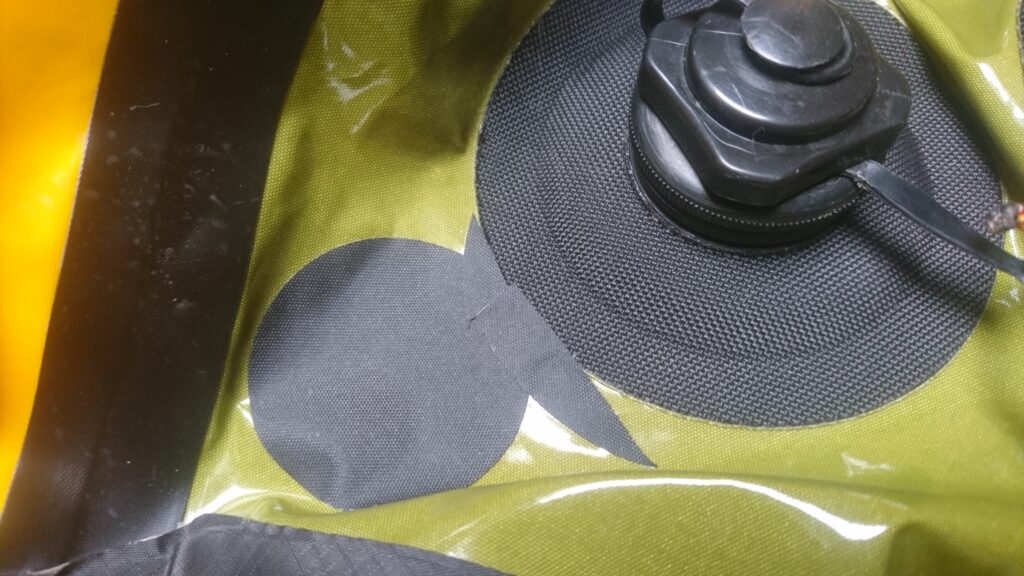
Expedition type 2: Packrafting gentle rivers over short distances, crossing small lakes and rivers.
On such expeditions, packrafting plays a very important part as it enables overcoming obstacles that would otherwise require possibly weeks of additional trekking. However, the packrafting itself usually forms a very small part of such an expedition. Thus, I usually allow myself to save weight as much as possible, and I take:
- Anfibio Nano SL [External link] is the ultimate weight saver while still being made from reasonably strong Nylon 210D, see my dedicated review on this website.
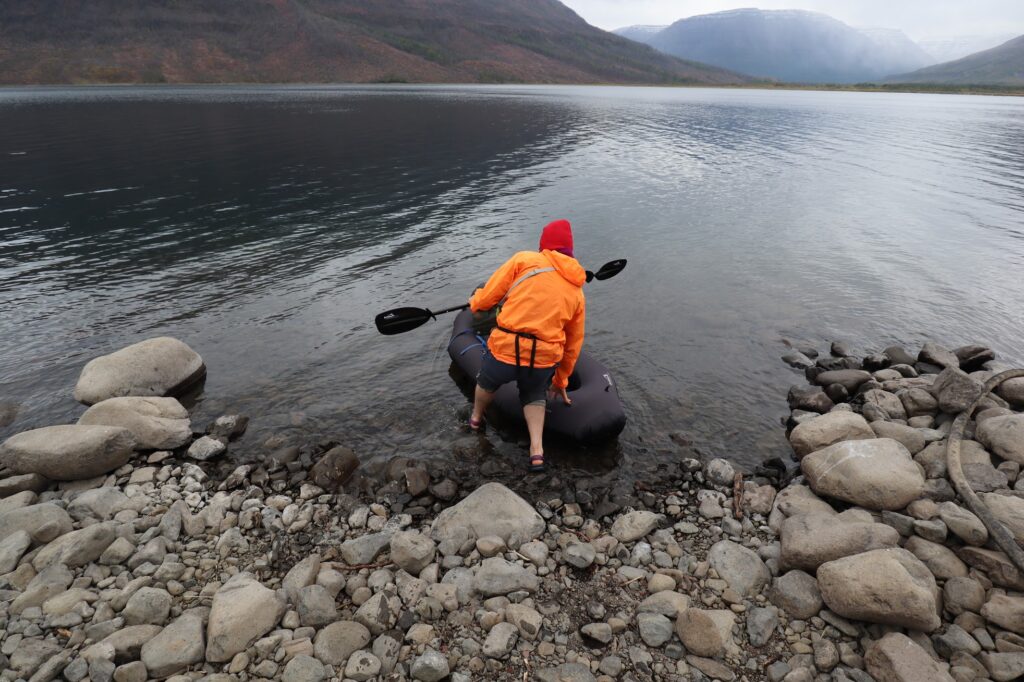
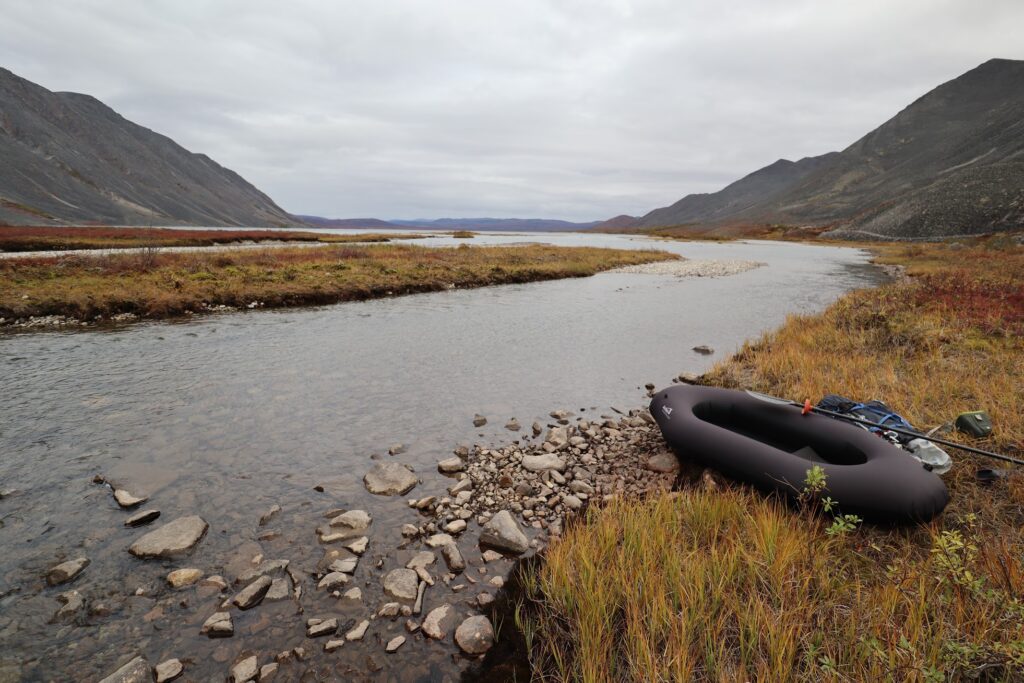
- Anfibio Fly [External link] is a paddle that is a perfect companion of Nano SL – the lightest of the lightest out there, at 480 grams! Perfect for lakes and gentle rivers, but be careful to not use on anything close to whitewater. I described it in a dedicated review that you can find here.
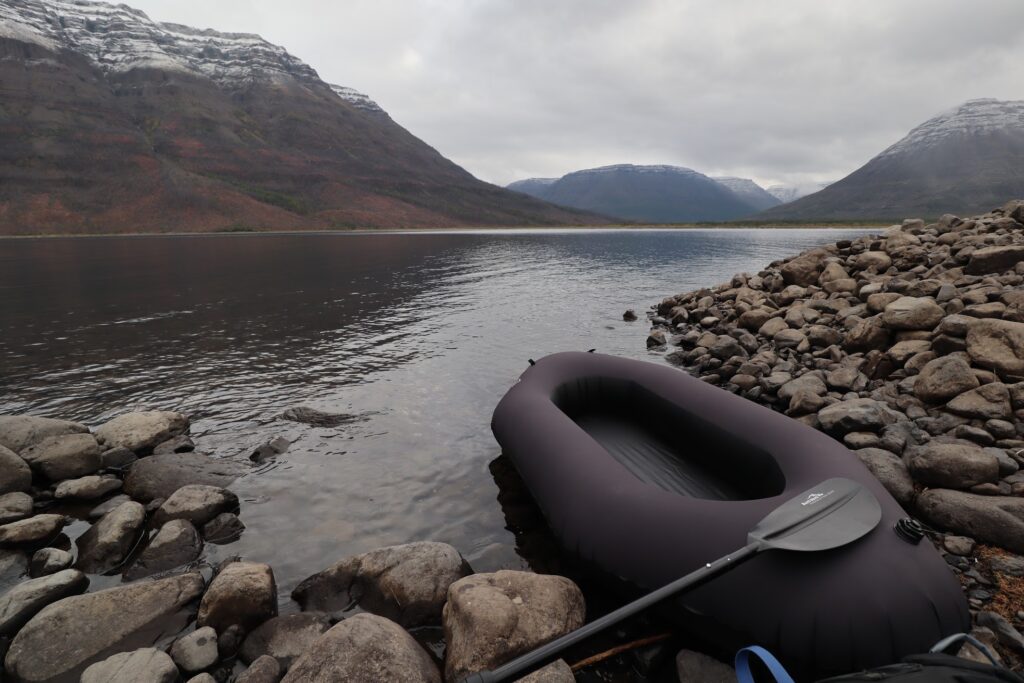
- Anfibio Folding Bottle [External link] is the lightest available folding bottle out there! It is lighter than the famous Platypus bottles, used routinely but all the ultralight focused people. I switched to it after I discovered it, and never regretted. Now, while I use it for transporting water, in this section I want to acknowledge its applicability as an emergency floatation “device”. Specifically, while I do not in general recommend going packrafting without at least Buoy Boy, during expeditions when packrafting really would play very minor part, one option is to use 3-4 inflated empty Anfibio bottles, stuffed underneath your clothes, and additionally attached with a cord to your belt (to completely eliminate the possibility of the bottles slipping out from below the clothes when in water).
- Anfibio Lifepatch – as above! [External link].
Full list of the Anfibio equipment that I have been using:
- Anfibio Rebel 2K [External link]
- Anfibio Nano SL [External link]
- Anfibio Buoy Boy [External link]
- Anfibio Vertex Tour [External link]
- Anfibio Fly [External link]
- Anfibio Lifepatch [External link]
- Anfibio Folding Bottle [External link]
